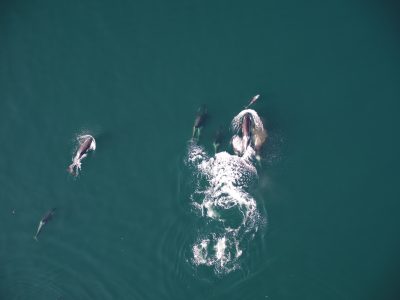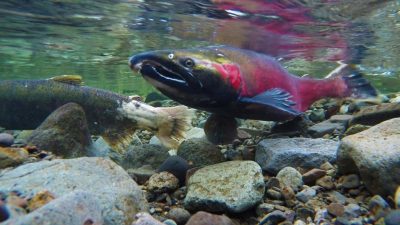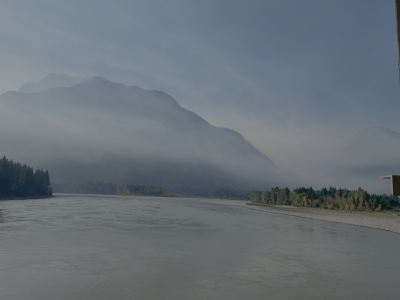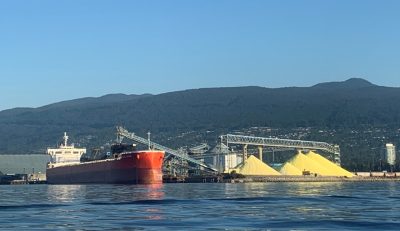Dr. Marie Auger-Méthé selected as a Science meets Parliament delegate
As part of the Science meets Parliament program, she will spend time in Victoria, working with provincial leadership on on environment and ecology issues.
Breaking down research silos to understand a shifting Salish Sea
The Sentinels of Change Alliance shows what’s possible when collaboration is a foundation, not an add-on
Orcas and dolphins seen hunting together for the first time
Canadian researchers capture rare video of killer whales and dolphins working together to forage salmon off B.C. coast, suggesting the two species have forged a co-operative relationship
Bridging the gaps to save British Columbia’s salmon
Indigenous stewardship needs to be recognized and supported, giving First Nations and local communities clear decision making authority.
New mega RNA virus may hold the key to mass oyster die-offs
Scientists have discovered a previously unknown virus in farmed Pacific oysters during a mass die-off in B.C., Canada.
Wildfires could be harming our oceans and disrupting their carbon storage
Wildfires pollute waterways and could affect their ability to sequester carbon, recent University of British Columbia research shows.
The future of Pacific salmon: Community dialogues underscore the urgent need for collaborative restoration
Thirteen public meetings to gather knowledge from local and Indigenous communities in support of salmon rebuilding and recovery in the Pacific Northwest.
Hindcasting the Salish Sea reveals long-term patterns of environmental change
Greig Oldford, PhD Candidate at the University of British Columbia’s Institute for the Oceans and Fisheries (IOF) recently co-developed The Hindcast of the Salish Sea (HOTSSea) to address gaps in historical observations.
IOF faculty and students win awards from the Peter Wall Legacy Awards program
These awards are one of the largest internal award programs at any university in North America. The suite of awards will support the research activities of tenure-track faculty members at all stages of their career, and those of Master’s and doctoral students.
Why what happens on the land is critical to the health of our oceans
What is the significance of these myriad small streams to the surrounding ocean, so important to people’s livelihoods, culture, and well-being in British Columbia?







